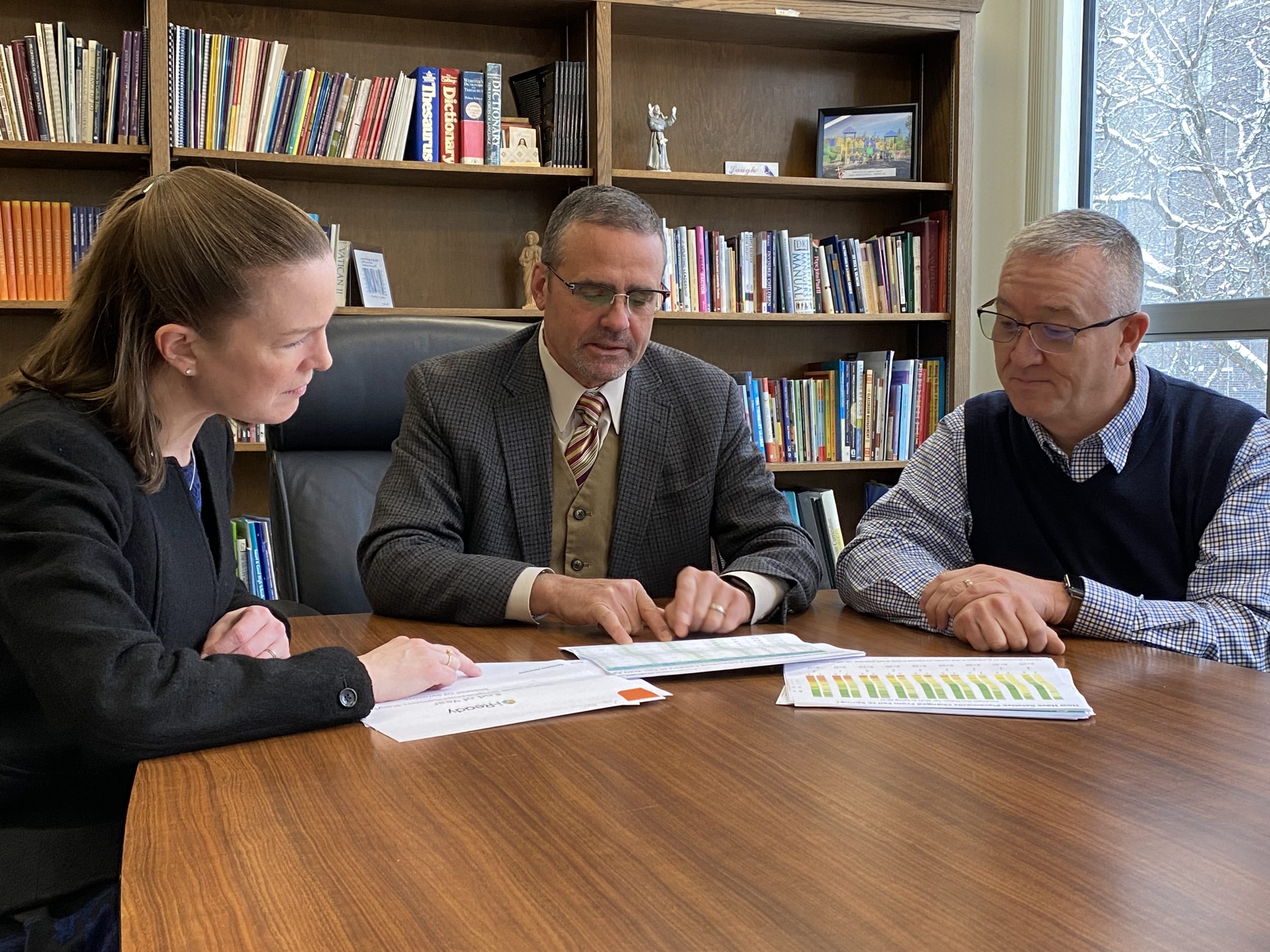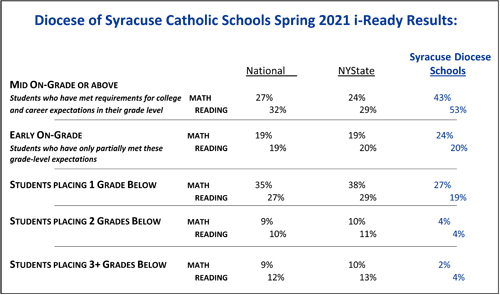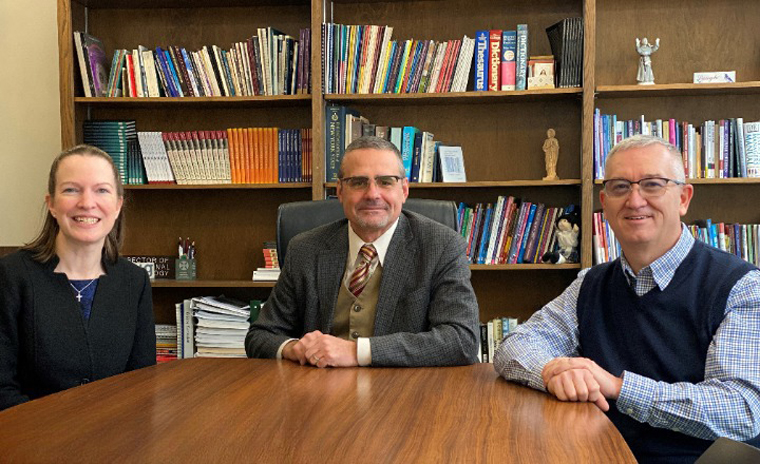It’s been almost two years since the term ‘covid-19’ entered our vocabulary, our society, and our lifestyles, and nowhere has that been more evident than in the education systems we trust to provide our children with needed skills and support tools. In the Diocese of Syracuse, there has been great concern for the social-emotional impacts and mental well-being of their students as well as the academic challenges that have risen out of the pandemic. Fortunately, school system leadership has found a very helpful tool to monitor how students are growing in their skills and abilities during these historic times of change.
“We are so proud of the story of i-Ready assessments,” says Amy Sansone, director of Leadership Development & Mission Effectiveness for the schools. “It’s something the diocese chose during our most recent accreditation with Middle State as one of the metrics we could look at across all our schools.” The areas measured include overall student growth and identify areas of challenge.

The executive team of the diocesan schools office pores over the results of the latest i-Ready assessment.
“It’s not a test, it’s not an achievement measure…it’s an assessment of growth,” according to Sansone, who adds that the diocese uses it as an indicator in areas of reading and math. The results show that diocesan school students have demonstrated superior growth when compared as a collective group to both national and statewide statistics.
The i-Ready Assessment is a product of Curriculum Associates, a 50-year-old company whose mantra is to make classrooms better places for teachers and students. Their stated mission is to introduce and then constantly improving innovative products that give every student the chance to succeed. The i-Ready tool provides a wide range of assessment needs in a single package, providing the data teachers need to target instruction where it’s needed most. According to Curriculum Associates, the information it delivers is based on industry-leading assessment design concepts and backed by extensive validity evidence.
The i-Ready tool is tailored to each district that uses the process and assessments are given three times a year, in September, January and May-June. Sansone explains that ”as an assessment, this isn’t something that a student sits down, studies for, and takes one time. It truly is an assessment. When you look at results three or four times a year, you can identify kids who may need help or support, before a problem grows too large.”
Parents seem to like the focus that this system places on growth and improvement, rather than static grades that serve more as snapshots of the student’s situation rather than telling a more complete story.
“Instead of a report card with a grade, the parent receives an informative chart with all of these different breakdowns…a parent sees that their child may have different growth opportunities or challenges. It better facilitates conversations we have with parents about their children.”
 Donald Mills is the assistant superintendent of diocesan skills, and he observes that, in reviewing the overall data, it’s important to note that the good news is found in both extremes of the results.
Donald Mills is the assistant superintendent of diocesan skills, and he observes that, in reviewing the overall data, it’s important to note that the good news is found in both extremes of the results.
“If you look at the graphs, it’s as much about how strong the positive areas of the charts get as it is how small the challenged areas of the charts get as well.” In comparing this to the state and national statistics, Mills says “where everyone else saw loss, we gained, so this wasn’t about covid-loss, it’s covid-gain. At the beginning of the year, the number of students who entered that school year one or two grade levels behind, shrunk as they went through the rest of the year. They grew along with everybody else.”
The assessment shows that students in the Diocese of Syracuse Catholic Schools not only resisted a Covid-induced backslide last year but made significant gains.
Diocesan school superintendent William Crist observes that “Our administrators and teachers should be proud, that by providing in-person instruction last year– all year– our students were able to continue their learning and displayed admirable growth. Our parents and students should be equally proud of the day-to-day hard work, both at school and at home, that resulted in true growth in learning.”
The changes measured by i-Ready in diocesan schools from Fall 2020 to Spring 2021 showed significant growth in math and reading skill levels. For example, the numbers of students measuring at or above their grade level in math rose from 8% to 43%; reading assessments more than doubled, from 21% to 53%.
While the i-Ready assessment doesn’t replace traditional report cards, it does give teachers and parents another tool for communication and assessment. Sansone points out that student grades are not affected by the assessments and teachers still “have autonomy based on tests and whether or not assignments and homework are completed. It’s another wonderful tool we have, and it’s across all our schools.”
See the accompanying graphic for a comparison of how Diocese of Syracuse schools measure against schools from around the state and the country when using the i-Ready assessment tool.







